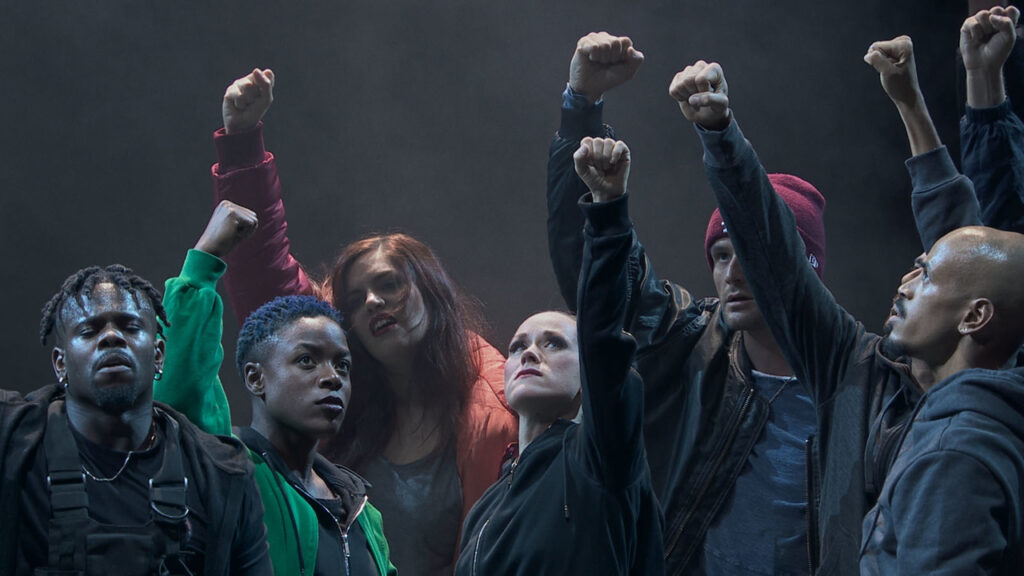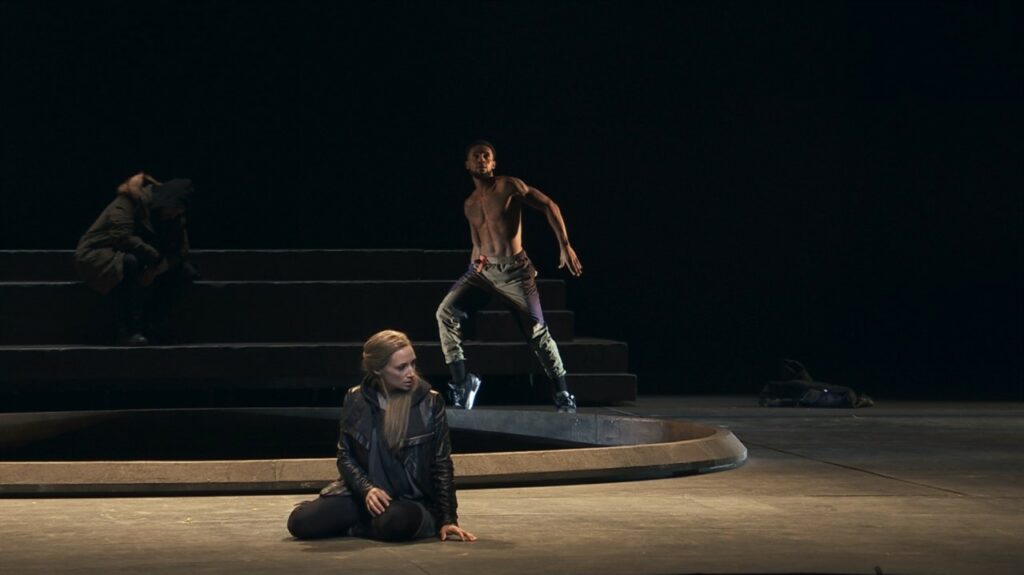Jean-Philippe Rameau’s mighty opéra-ballet Les Indes Galantes is a titan of French culture, a baroque and (for the time) exciting musical endeavour into the world’s most far-flung ‘exotic’ places. It is also one of the most atrociously colonialist, offensive sins that so-called ‘high art’ has ever committed. It is this torrid subject matter that a troupe of 30 dancers – whose specialities range from krump to hip-hop and breakdance, among others – want to address, reimagining Rameau’s classic as a contemporary story of diversity, plight and dynamism in modern France. With documentary director Philippe Béziat there to capture the creative process, Gallant Indies follows the cast over the course of a year as they take the idea from concept to stage, culminating in a performance run at the Opéra Bastille.

Béziat’s César award-nominated documentary is as much a chronicle of creativity as it is a film about mutual understanding and respect. Gallant Indies transports Rameau’s opera from four corners of the world to four corners of Paris, set in different neighbourhoods made up of different demographics and each with a resident style of dance. The film is truly a melting pot of movement, with different styles and people coming together on stage for a story of eclecticism and identity. It is the foundations of this creative journey that is the focus, with happily little focus on the original text. You don’t need to know anything about Les Indes Galantes, or even about opera, to appreciate Gallant Indies. All you need to be is open to the idea that art is a fluid process of change and reinvention, and Béziat’s film will effortlessly entrance you.
The dancers are at first completely at a loss when it comes to opera, their disillusionment and slight amusement after their first time being in an audience marking them out from the crowd. One woman actually comes up and seemingly congratulates them for attending, as if they have finally managed to break into the realm of ‘high art’ and are deserving of such. It is a condescending remark (albeit likely not intended that way) that in Béziat’s narrative is the catalyst for what follows. Street dance is used to break down opera’s elitist sphere and just as importantly bring the power of styles like krump to audiences who would otherwise be blissfully unaware of its existence. Les Indes Galantes is transformed into a striking commentary on race and politics in France today, with one scene addressing the ongoing Mediterranean migrant crisis proving particularly powerful.
Footage taken straight from social media stories and posts add a personal, improvised edge, emphasising how Gallant Indies is an experiment in art and narrative as well as a fascinating, sprawling social commentary. Great care is taken to explain and explore the parallels between history and the present, as is the personal backgrounds of some (but not all) of the performers. The end result, fusing personal entries with a more holistic account of the new show’s production, is an energising, rhythmic sensation of a movie, not letting the necessarily factual manner override any sense of zest or colour.

It isn’t quite the complete account you may be after. There is little indication of what happened to all the performers after the show (which was met with a mixed critical reception but went down a storm with audiences). Béziat also opts to neither observe nor record any moments of substantial creative conflicts between the troupe members. Perhaps there were none of note to be observed, although for such a challenging experiment in narrative and dance you would expect there to be some; their absence means certain sections drag slightly. However, it can’t take the shine off what is an incredible story and a timeless reminder of how art allow such potential for change, justice, and creativity. Gallant Indies is a stylish, intoxicating look at creative evolution, captured with a passion and soul that shines out in every moment.
Gallant Indies is screening as part of the French Film Festival’s Screen Horizons programme at Summerhall, Edinburgh.
